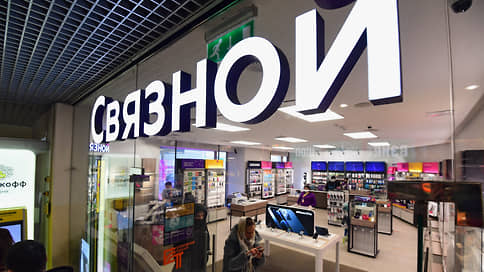Alfa Bank intends to file for bankruptcy of the Cypriot DTS Retail LTD
[ad_1]

Alfa Bank intends to file an application for bankruptcy of the Cypriot DTS Retail LTD, the beneficiary of the Svyaznoy Network, which itself is already in bankruptcy proceedings. In March, the bank filed two claims against DTS Retail LTD, which guaranteed Alfa Bank for Svyaznoy loans, for more than 7.6 billion rubles. Lawyers note the difficulties of starting the bankruptcy of a foreign company according to Russian rules, but consider the bank’s chances of success high.
“Kommersant” found in the EFRSB database a message dated September 11 that Alfa Bank intends to apply to the arbitration court to declare bankrupt the Cyprus DTS Retail LTD – it has 69.25% in Svyaznoy Network LLC. Judging by the file of cases of the arbitration court, in March Alfa Bank filed two claims against DTS Retail, the amount of claims for which amounted to 548 million rubles. and 7.67 billion rubles. On June 15, the Moscow Arbitration Court fully satisfied the bank’s claims for 548 million rubles.
From the materials of this case it follows that between Alfa Bank and Svyaznoy in April 2018 an agreement was concluded on bank guarantees for 9 billion rubles. The bank assumed obligations to pay for the supply of goods to the network. Dts Retail guaranteed that Svyaznoy will return the money.
In April 2022, Alfa Bank paid RUB 2.92 billion as part of the guarantee. “Samsung Electronics Rus Company”. In November 2022, according to the case materials, Svyaznoy and the bank entered into an additional agreement under which the debtor received a deferment until March 2024, Vedomosti wrote. However, Svyaznoy violated the debt repayment schedule; its debt to the bank amounted to 548 million rubles. In this regard, Alfa Bank turned to DTS Retail to collect the debt. Svyaznoy and the bank did not answer Kommersant.
According to SPARK-Interfax, Svyaznoy Network LLC is 69.25% owned by the Cypriot DTS Retail, 30.5% by the Dutch Euroset Holding NV (directly and through JSC Svyaznoy Group of Companies) and another 0.25% — Virginian Cinamon shore LTD. At the end of 2022, the company’s revenue amounted to 56.7 billion rubles. with a loss of 48 billion rubles. The company operates 2.6 thousand electronics stores in Russia. The explanatory note to the financial statements states that the individual with a predominant participation in the capital (more than 25%) is Oleg Malis.
Meanwhile, last year the network began to receive claims from counterparties due to non-fulfillment of contracts. In June, the Moscow Arbitration Court introduced a surveillance procedure against Svyaznoy at the initiative of the company itself. At the time of bankruptcy, its debts to creditors, including, in addition to Alfa Bank, for example, VimpelCom, Citylink and Merlion, exceeded 15 billion rubles.
Case by Case lawyer Yulia Mikhalchuk notes that it is more profitable for a Russian creditor to bankrupt a foreign company in the Russian Federation – it is faster and cheaper than hiring lawyers abroad. “In addition, to initiate bankruptcy abroad, a bank first needs to go through the procedure in Cyprus for recognizing a Russian court’s decision to collect a debt, which is not easy, including searching for and hiring foreign consultants,” clarifies NSP partner Aram Grigoryan.
At the same time, Ms. Mikhalchuk admits, convincing a Russian court to begin bankruptcy proceedings against a foreign debtor is also not easy, and so far such cases are rare. David Kononov, head of the bankruptcy practice of Lemchik, Krupsky and Partners, explains that the company must have a close connection with Russia, in particular, conduct its main activities here, have bank accounts, counterparties, own legal entities, etc. In this regard, according to According to Aram Grigoryan, taking into account the fact that the main asset of DTS and the company’s business area is connected specifically with the Russian Federation, the bank’s chances of triggering the bankruptcy of DTS in Russia are “quite high.”
However, in the end the proceedings may turn out to be purely formal. Vadim Reznichenko, head of the law firm atLegal, points out that in court the guarantor did not dispute his debt to the bank and did not appeal the decision, that is, “the proceedings were purely formal.” Mr. Reznichenko admits that if DTS has no other assets other than its share in Svyaznoy, “the bank may need to pay off an obviously bad debt to simplify debt write-off.”
[ad_2]
Source link





